The cost of living in Dubai
The cost of living in Dubai can differ depending on many factors – whether you choose to live and spend lavishly or enjoy the quieter side of entertainment; whether you cook and eat at home or dine out in the fanciest lounges Dubai has to offer – either way there will be a plentiful of options offered all across town.
Is Dubai expensive?
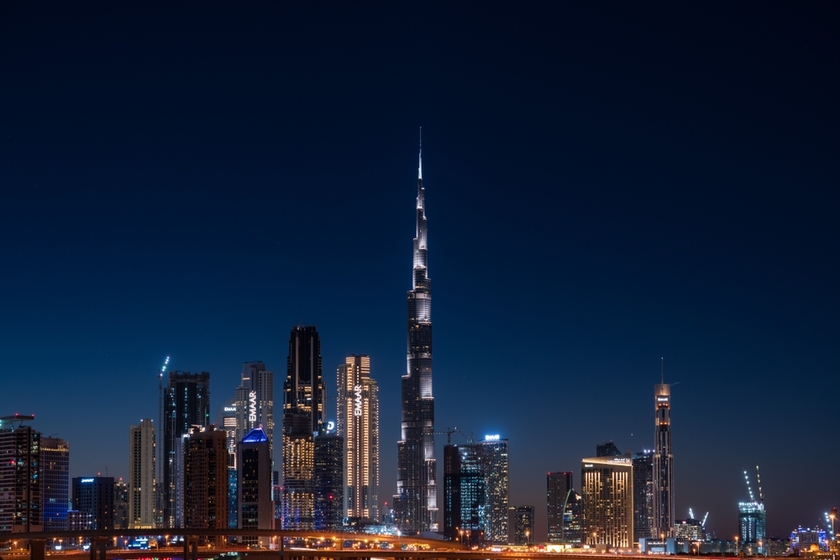
Dubai sits proudly at the top 25 most costly towns for living across the globe and the high-price comes justified when you look at the level of life in Dubai and several outside factors, like major imports in order to support said life-style.
However, Dubai at the same time is considered to be cheaper in terms of residential cost than a lot of capitals, making it an all-viable option for permanent residence.
The most expensive and cheapest neighborhoods to live in
Although Dubai has earned a place on the list of highly luxurious and pricey places, a balance of cost on the residential property market can be explored through its diverse neighborhoods.
The most luxurious neighborhoods of Dubai
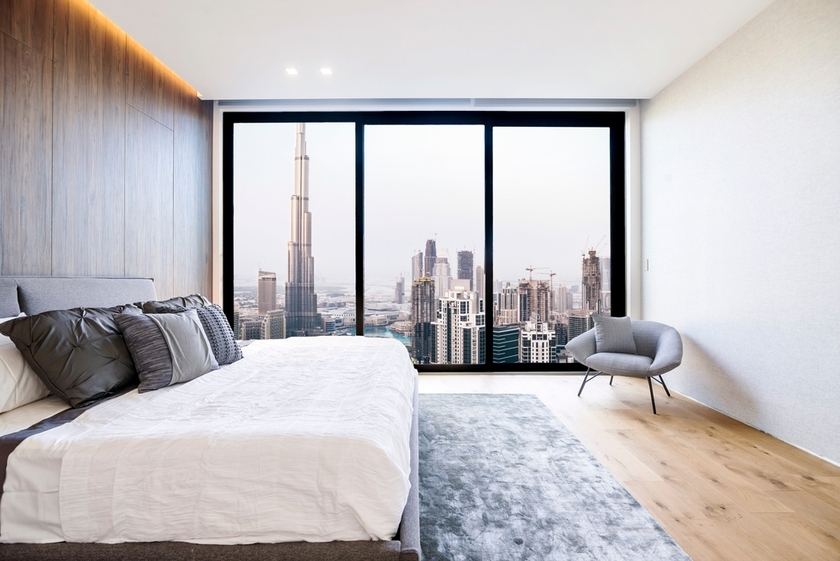
Below is a selection of highly expensive residential areas of Dubai:
- Dubai Hills Estate – a green paradise of solitude and comfort. Mostly populated with villas and recreational amenities, this neighborhood represents a relaxational heaven that is supposedly the most eco-friendly area found in Dubai;
- Emaar Beachfront – a relatively new neighborhood right out in the ocean with an astonishing view and a short distance away from many shops and restaurants, as well as a wide beach area across the whole neighborhood;
- JBR – considered to be a highly expensive to live in area of Dubai, this neighborhood is impressive with its chic skyscrapers, waterfront views and luxury entertainment like yacht docks, boutiques and world-class dining;
- Dubailand – an ambitious neighborhood planned out to be a grandiose entertainment area with a line of living space surrounding it. Amusement parks, green alleys, shopping malls and other infrastructure is being rapidly built in this region of Dubai, quickly rising its value on the market;
- Bur Dubai – filled with a mix of old and new, this area – the oldest in Dubai, preserving the leftovers of its historical architecture. Bur Dubai is thus famous for its cultural attractions that keep the living cost nearby quite high despite the age of the neighborhood. At the same time, both costly and somewhat cheaper options can be found in this neighborhood.
The most sustainable residential areas
Oppositely, many affordable regions in terms of living prices can be found in Dubai:
- Warsan First – primarily residential, this farther away neighborhood is perfect for a quieter, more economic lifestyle. All the necessities for life and work are ready in this area, keeping it in high demand and allowing accessibility. Mixed residential types of property are allowed to make Warsan First diverse and populated with beneficial offers;
- International City – a convenient low-cost area offers a great number of rental deals for varying family size. A small cluster of interconnected areas named after diverse countries is filled with studio and apartment options and surrounded by necessary infrastructure;
- Al Muntazah – another mostly residential area that has combined the comfort of lavish living and the significantly cheaper life of farther away neighborhoods. Quieter than in the city center, but still lively and convenient for any lifestyle, this area has managed to balance all which expats seek coming to stay in Dubai;
- Hessayan – a Dubai community of mixed property with convenient facilities and affordable average living cost. With an outstanding amount of overall nature, Hessayan offers waterside of lakes, creating an overall eco-oriented living. Built nearby the main roads, this neighborhood stays convenient in travel and creates a way to live both away from the overall lush of Dubai and stay close enough to become a part of it any time;
- Ras Al Khor Industrial – a series of areas, dedicated to residential living and industrial working in Dubai. Most convenient for cheaper rent and sale, this neighborhood is heavily populated with common workers, supplying them with comfortable life and accessibility to all the facilities. Closer to the heart of town regions are filled with more chic, yet still more affordable options, creating a balance in-between the regions.
What are the costs of living in Dubai?
The everyday life in Dubai may cost you differently, however, some averages are easily precalculated to determine the unavoidable expenses.
Housing expenses in Dubai
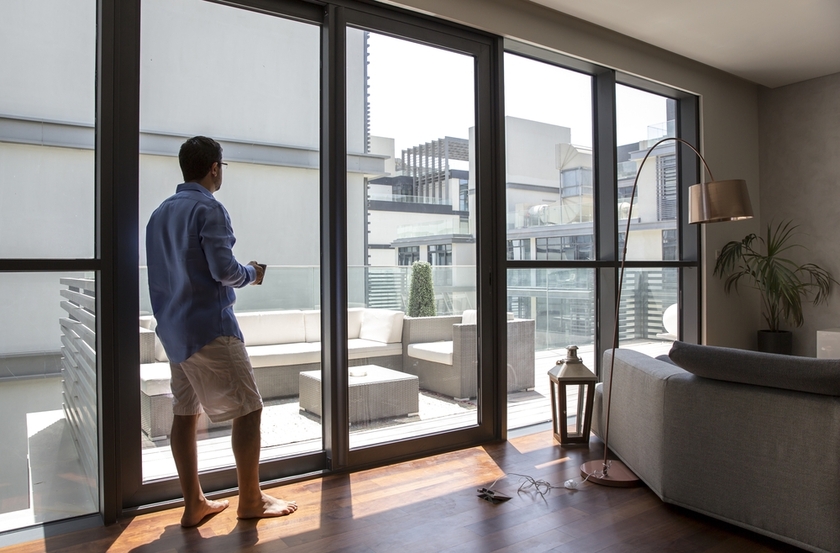
How much you spend on housing differs due to many factors, such as:
- Type of residential property;
- One-time purchase or rent;
- Size of property;
- Family size;
- Need of additional services, for example, professional cleaning or garden care.
If you have purchased a home in Dubai and have dealt with initial fees, on average you will now only have to deal with monthly expenses for utilities. That includes water, phone, internet, electricity and garbage. At that, basic utilities’ cost will be determined by the number of people staying on the property. For example, living alone will cost you from 450-800 AED monthly, whereas a family of four’s starting point will be nearly 50% higher.
All additional services’ price on average will be determined by the depth and frequency of usage.
Food expenses in Dubai

The majority of the food found on the market is imported into Dubai due to its lack of own farming options, thus raising the average pricing. Buying food in season and avoiding excessive expenses can lead to a monthly cost of somewhere around 500 AED per person. Of course, that number greatly fluctuates, determined by preference in food and frequency of consumption. For example, 1 kg of chicken filet goes for about 30 AED, whereas beef of the same weight will be somewhere 25-30% higher in price.
Fast food will generally cost 30-40 AED per serving and the average restaurant meal begins from fifty and can go way over 100 AED.
Entertainment costs in Dubai
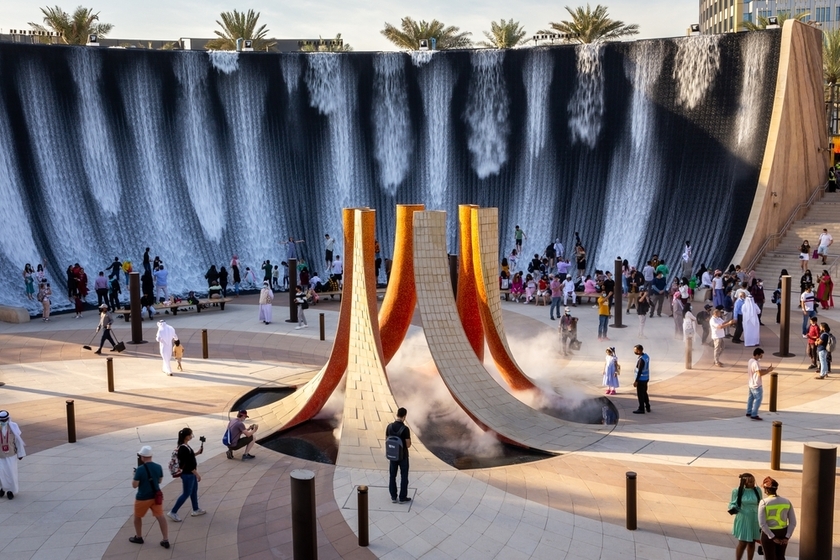
Aside from business opportunities and extravagant housing, Dubai is famous for its lavish entertainment. Theme parks, art galleries, museums, aquariums, opera, massive shopping malls, cinemas – the list of amusement found in Dubai is endless, how you choose to spend your leisure time is up to you.
When it comes to pricing, there can be modest prices as well as overly luxurious entertainment means, for example, skydiving centers or other pricey extremes.
Nightlife
Despite strict traditions and regulations of the Middle East, Dubai is a city full of international influence, and thus has succumbed to opening several nightclubs across town for local, but mostly expatriate’s entertainment. More modest than most European nightclubs, they still provide great means of leisure during the night hours. Although some nightclubs are free to enter, others have an entry fee along with regular pricing for drinks. For example, 100 AED for an entry and a cocktail.
Speaking of drinks, the usage of alcohol has recently been allowed in the heart of the UAE, but also very limited and controlled. Dubai’s nightlife remains to be one of the most pristine and self-conscious.
Transport Price in Dubai

Besides set prices, how much you spend for transport depends on how often you travel around town and what means of transportation you use to do so.
Metro
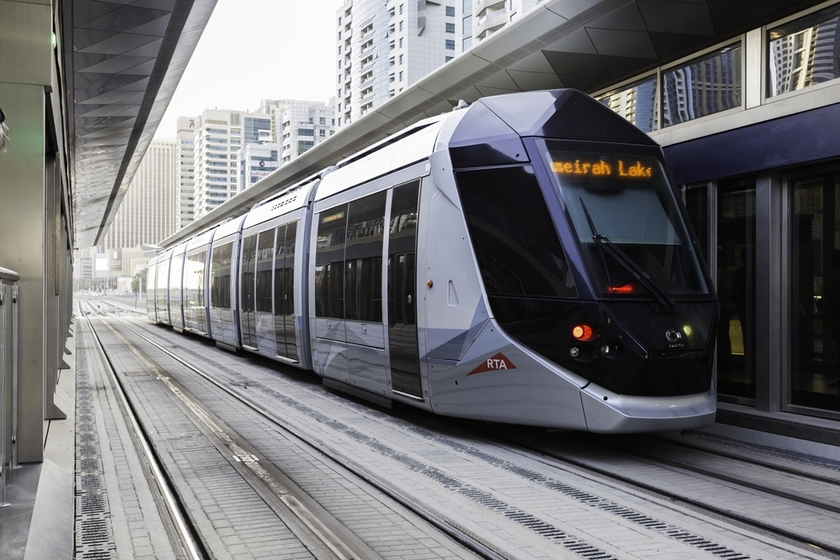
A convenient system of metro stations is piercing the town all around. The monthly ticket for metro on average is totaled at 330 AED and can slightly change depending on the frequency of use because of the NOL card system which gives different benefits and discounts for different public transport. You can also lean towards single-use tickets at 3 AED, if you don’t use the metro regularly.
Bike share
An eco-friendly alternative to the ever rising popularity of cars, a bike share system has been launched in Dubai to provide easy and comfortable movement around town. Fully electric bikes are spread across Dubai with many charging smart stations. Also available are rental facilities for regular bicycles, with a membership card for just 20 AED for a day.
Taxi
When it comes to the taxi travel cost, in Dubai it is determined primarily by several factors: a minimum of 12 AED that will be charged regardless of destination, a fee based on distance/time and the initial flagfall fee.
Monorail
Palm Dubai Monorail is a popular means of transport that represents a train-like system that offers a scenic route across Dubai avoiding any traffic and the city hustle.
The ticket to a monorail ride starts at 10 AED for a single use, up to 30 AED if you take the roundtrip. A day pass is available at 35 AED with unlimited uses and a family pass for 99 AED that covers a roundtrip for four family members.
Abra boat
An abra boat is another scenic way to move about in Dubai that carries people across the water that requires payment of 1 AED via coin across Dubai Creek, 25 AED across Dubai Canal. Such transport is perfect for leisure appreciation of the scenery under good weather.
The price of education
Reaching the age of about six years old, all children living in Dubai are required to attend regular classes. Public schools are of no charge for Emirati nationals only, for expats it will cost 6.000 AED annually. Furthermore, expatriate parents have access to many private schools. The price for those ranges widely between 20.000 and way over 100.000 AED per year judged by the school’s rating and the attending year. Aside from that, there are various fees that will be added throughout the attendance, for example, examination fees, payment for certain textbooks, office supplies, etc.
Higher education fee for enrollment on average starts with 50.000 AED and caps at about 130.000 AED annually.
Healthcare fees
Available for free for national citizens, healthcare in Dubai is accessible for expatriates via a 50% discount through the acquisition of a health card. This card can be obtained with a one-time payment for ten and over eighteen years, 120 and 320 AED respectively. Once it’s expired, a new card must be issued.
What’s the average price to live in Dubai?
The way of living in Dubai will be different in price, however, some utilities are unanimous, making it indifferent to the number of people living on the property.
Average monthly spending
On average, a living alone person in Dubai spends on everyday life necessities about 5.000 AED per month, excluding rental costs. Rent for studio apartments in Dubai starts as low as 30-40.000 AED per year. However, sometimes it is more beneficial to purchase property instead of renting. One-time major payment in Dubai is quite profitable for future dealings with said living space. For example, Bright Rich can find options for small studio apartments in Dubai for just over 400.000 AED and support clients on every step of the transaction. The most profitable part of buying instead of renting in this case is that property will pay off after the first two years of purchase.
For couples that average raises by around 50%. When it comes to families, a family of four roughly lays out from 15.000 to over 25.000 AED each month, excluding rent. Of course, that total fluctuates under many factors, including the age and number of children.
What Is the minimum cost of living?
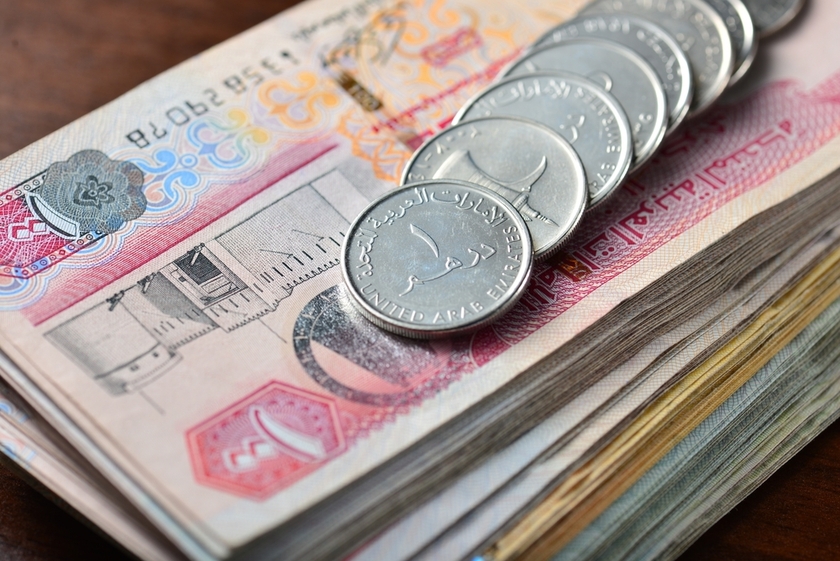
The minimum expenses for life in Dubai will round up to about 4.000 AED per month for one person, who will use shared transit, buy groceries at the seasonal markets, limit leisurely spendings and live a more reserved life-style. That number does not include rent, periodic repairs, purchasing clothes and any out of hand situations requiring monetary involvement.
For couples, monthly payment for necessities in Dubai will reach 5.500 AED with more cost for utility bills, the food basket and transport expenses. At last, for families the minimum monthly spendings start somewhere around 13.000 AED with the cut of all additional expenses, cheaper nurseries or schools and limited choice of food and leisure.
To summarize, the total amount of finances spent monthly for life and leisure in Dubai is determined by a complicated list of factors, the most giving being the way of preferred lifestyle – as Dubai allows its visitors and residents to exist as calmly or as lavishly as they can allow themselves.
Secondly, despite the overall belief that Dubai is a high-price resort for extravagant activity, the diversity of the town allows it to support all foreign residents coming for work and life in Dubai. No difference to if you are a sole entrepreneur or a young and growing family – there will be a place just for you in Dubai.